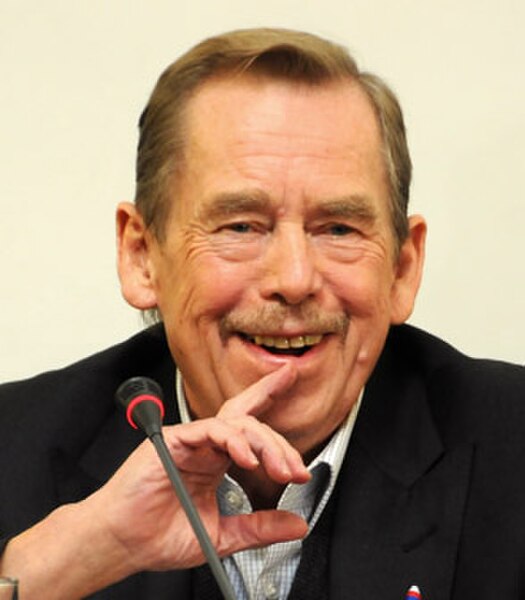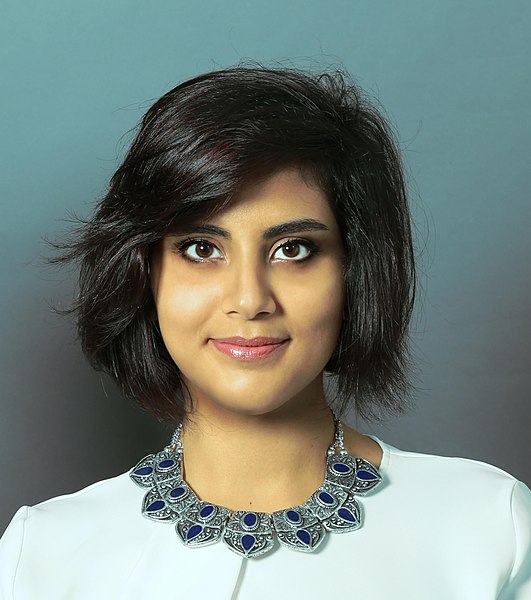Jamal Ahmad Khashoggi was a Saudi journalist, dissident, author, columnist for Middle East Eye and The Washington Post, and a general manager and editor-in-chief of Al-Arab News Channel who was assassinated at the Saudi consulate in Istanbul on 2 October 2018 by agents of the Saudi government at the behest of Crown Prince Mohammed bin Salman.
Khashoggi in March 2018
U.S. President Obama (left) after his 2009 speech A New Beginning, with Khashoggi next to him.
Khashoggi at a 2018 Project on Middle East Democracy forum called "Mohammed bin Salman's Saudi Arabia: A Deeper Look." on 21 March 2018
Khashoggi criticized the arrest of women's rights activist Loujain al-Hathloul in May 2018.
A dissident is a person who actively challenges an established political or religious system, doctrine, belief, policy, or institution. In a religious context, the word has been used since the 18th century, and in the political sense since the 20th century, coinciding with the rise of authoritarian governments in countries such as Fascist Italy, Nazi Germany, Imperial Japan, Francoist Spain, the Soviet Union, Saudi Arabia, North Korea, Turkey, Iran, China, and Turkmenistan. In the Western world, there are historical examples of people who have been considered and have considered themselves dissidents, such as the Dutch philosopher Baruch Spinoza. In totalitarian countries, dissidents are often incarcerated or executed without explicit political accusations, or due to infringements of the very same laws they are opposing, or because they are supporting civil liberties such as freedom of speech.

Václav Havel, playwright and former dissident. Leader of the Velvet Revolution, last president of Czechoslovakia and the first president of the Czech Republic.
Moscow Helsinki Group members Yuliya Vishnevskaya, Lyudmila Alexeyeva, Dina Kaminskaya, Kronid Lyubarsky in Munich, 1978
Saudi Arabian dissident journalist Jamal Khashoggi (left) at a 2018 Project on Middle East Democracy forum in Washington, D.C.






